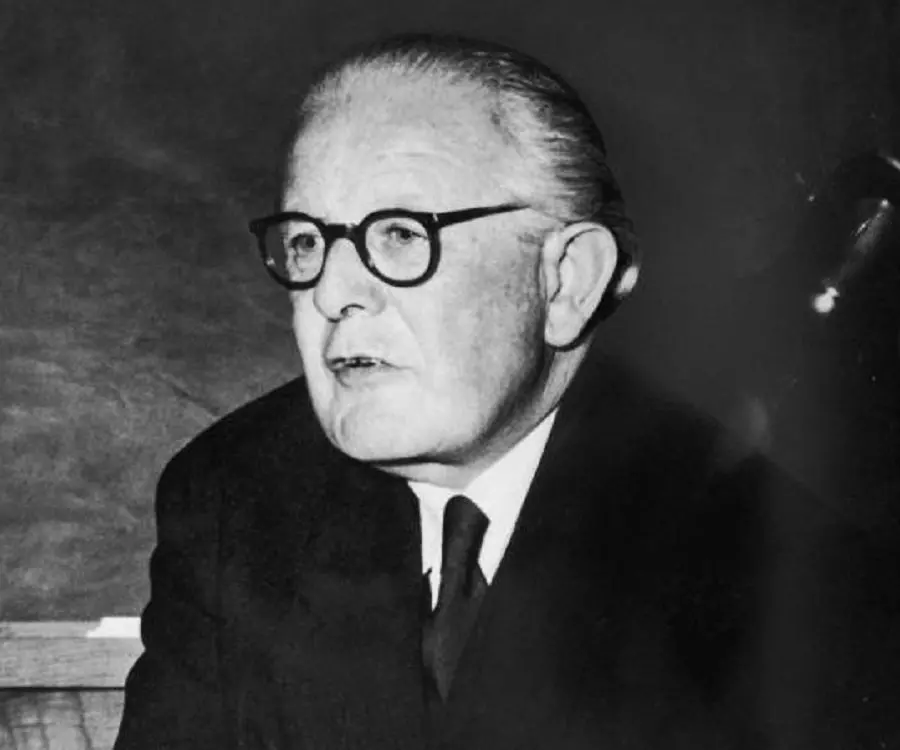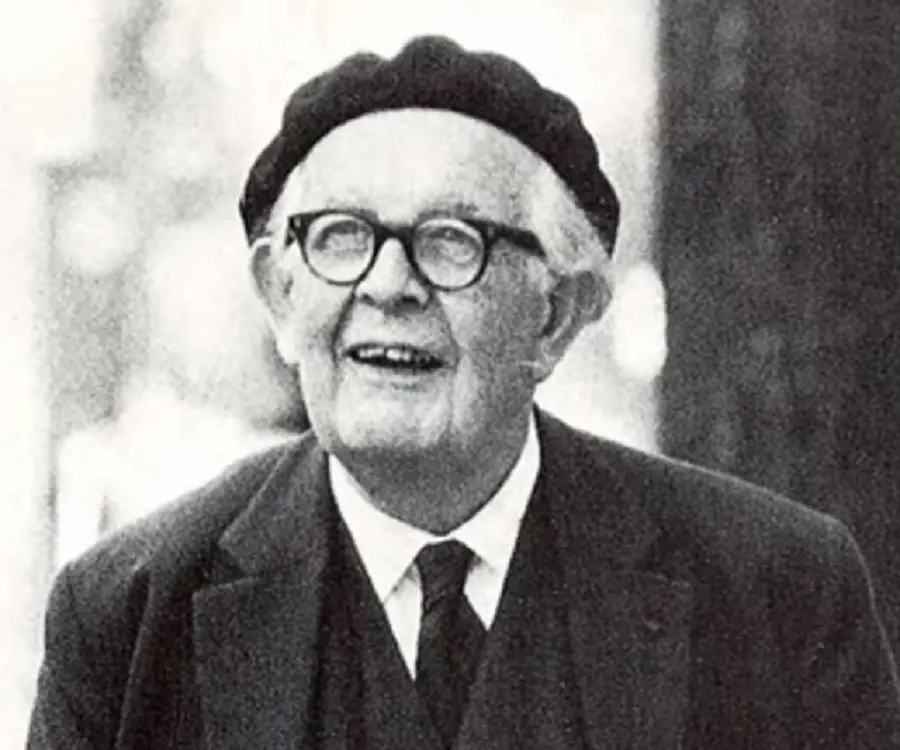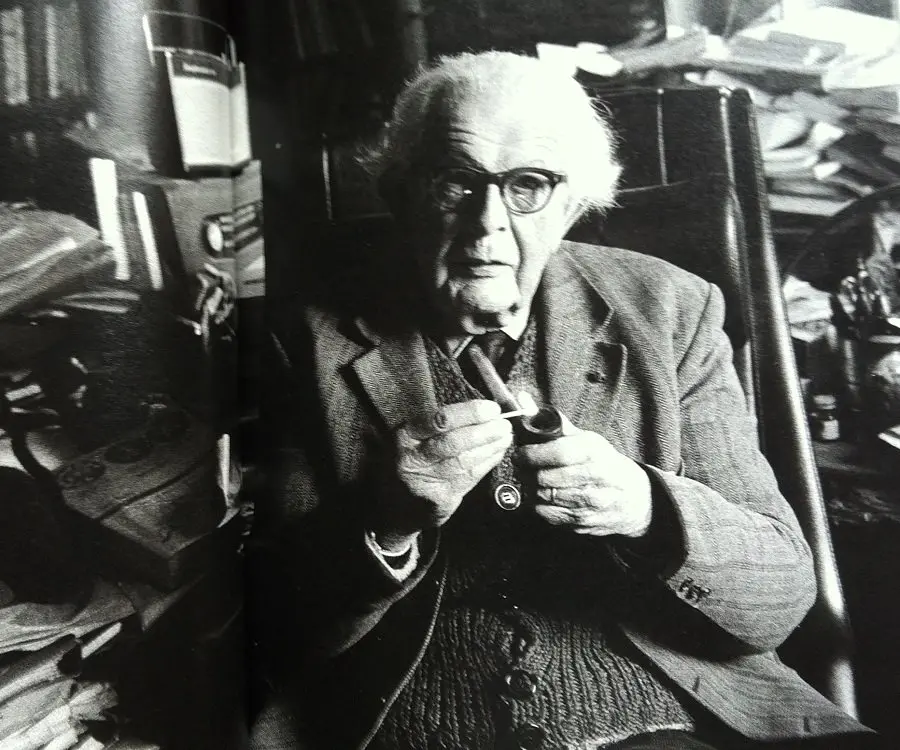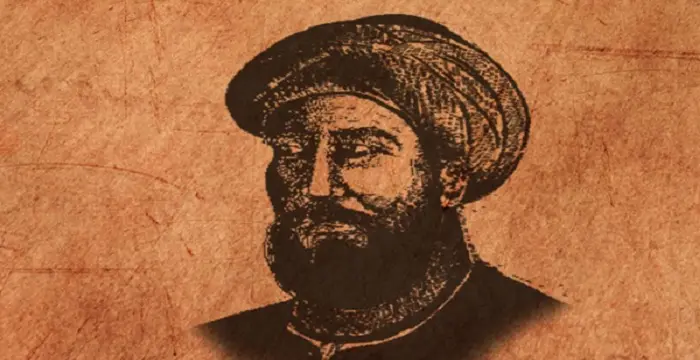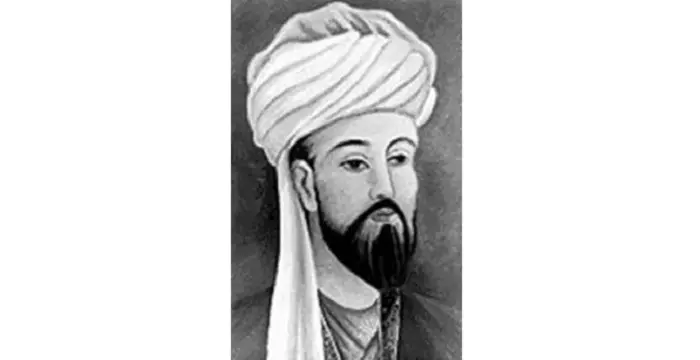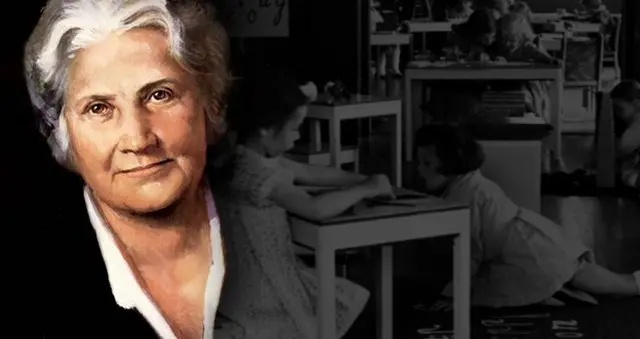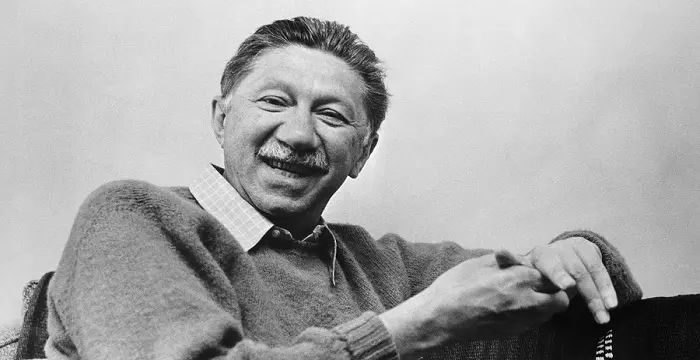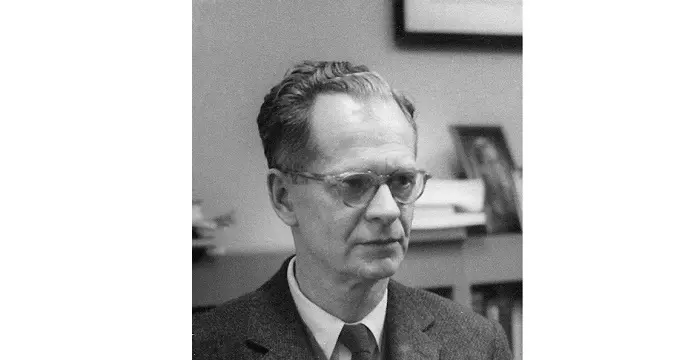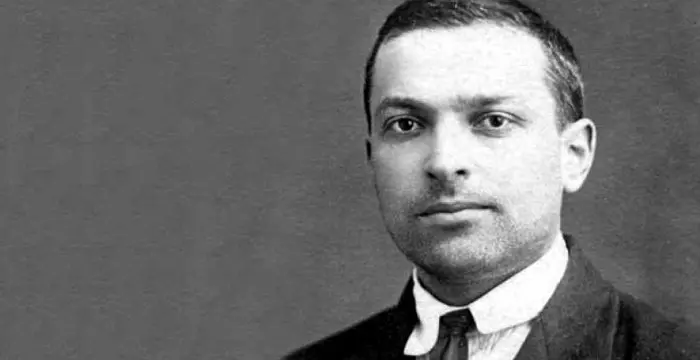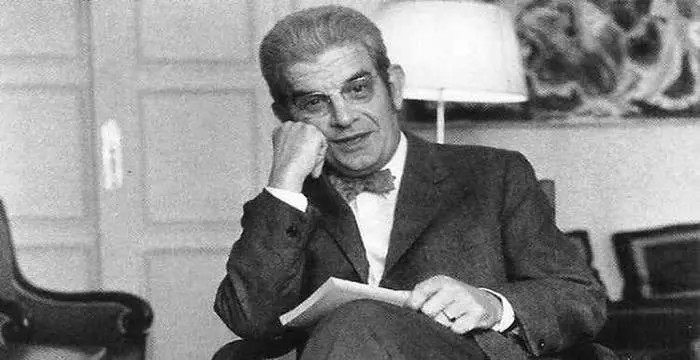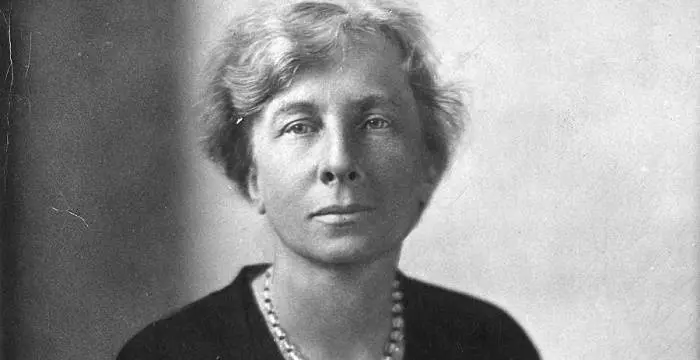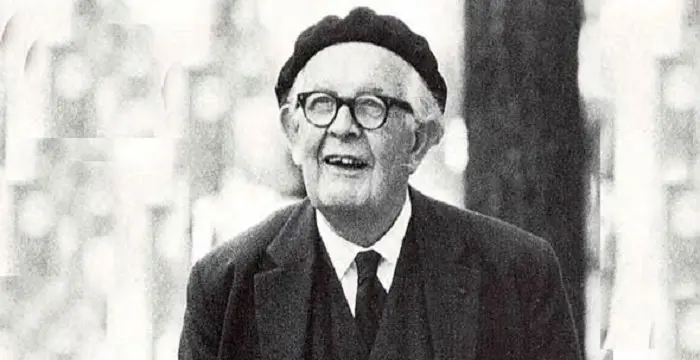
Jean Piaget - Philosophers, Career and Family
Jean Piaget's Personal Details
Jean Piaget was a psychologist and philosopher known for his theory of cognitive development
| Information | Detail |
|---|---|
| Birthday | August 9, 1896 |
| Died on | September 16, 1980 |
| Nationality | Swiss |
| Famous | Intellectuals & Academics, Philosophers, Psychologists, Physicians |
| Spouses | Valentine Châtenay |
| Known as | Jean William Fritz Piaget |
| Childrens | Jacqueline Piaget, Laurent Piaget, Lucienne Piaget |
| Universities |
|
| Birth Place | Neuchatel |
| Gender | Male |
| Father | Arthur Piaget |
| Mother | Rebecca Jackson |
| Sun Sign | Leo |
| Born in | Neuchatel |
| Died at Age | 84 |
// Famous Intellectuals & Academics
Bertil Gotthard Ohlin
Bertil Gotthard Ohlin was a famous Swedish economist. This biography profiles his childhood, family life & achievements.
Emily Greene Balch
Emily Greene Balch was an American economist, sociologist and pacifist who won the 1946 Nobel Peace Prize. This biography of Emily Greene Balch provides detailed information about her childhood, life, achievements, works & timeline.
Martin Buber
One of the greatest philosophers to have ever walked on earth, Martin Buber contributions to philosophy is a long-standing one. Explore all about his profile, childhood, life and timeline here.
Jean Piaget's photo
Who is Jean Piaget?
Jean Piaget was a Swiss psychologist and philosopher best known for his work on the cognitive development in children. He identified his field of study as ‘genetic epistemology’, a theory which combines cognitive development with epistemological view. Epistemology is a branch of philosophy that deals with the nature, origin, extent, and limits of human knowledge. What Piaget studied was the impact of genetics on the epistemological process. An intelligent child with a curious mind, Jean Piaget’s inclination towards scientific research was evident from his childhood when he began researching on an albino sparrow when he was just 11 years old. His interests later on were directed at psychoanalysis and he assisted Alfred Binet, the developer of Binet intelligence tests in marking the tests. During this time he became interested in the process of cognitive development in young children which differed considerably form the cognitive processes of older children and adults, and this motivated him to study the development of thinking processes in children. He considered education as a very important tool of imparting knowledge and believed that only education had the power of saving future societies from possible collapse. He founded the International Center for Genetic Epistemology in Geneva and served as its director till his death.
// Famous Physicians
Al-Zahrawi
Al-Zahrawi, was an illustrious medieval Arab Muslim physician and surgeon. Check out this biography to know about his childhood, family life, achievements and interesting facts about him.
Jabir Ibn Hayyan
Jabir Ibn Hayyan was a medieval era polymath. Check out this biography to know about his life, works and achievements.
Maria Montessori
Maria Montessori was a physician and educator who developed the approach of Montessori education. This biography of Maria Montessori provides detailed information about her childhood, life, achievements, works & timeline.
Childhood & Early Life
He was born as the eldest son of Arthur Piaget, a professor of medieval literature and Rebecca Jackson. His father was Swiss while his mother was French.
He developed a deep interest in biology and natural sciences as a child and had already published several articles on mollusks by the age of 15.
He received education in natural sciences and philosophy before becoming a psychologist.
He received his doctorate from the University of Neuchatel in 1918 and then undertook post doctoral training at the University of Zurich from 1918 to 1919.
Career
He moved to France after completing his studies. He found employment at the Grange-Aux-Belles Street School for Boys which was run by Alfred Binet, the developer of Binet’s intelligence tests.
Piaget noticed a marked difference in the way younger children gave wrong answers to certain questions as opposed to older children. This led him to conclude that young children’s cognitive processes are different from older children and adults.
He returned to Switzerland in 1921 to work as director of research at the Rousseau Institute in Geneva. At that time Edouard Claparede was the director of the Institute and Piaget was familiar with his ideas on psychoanalysis.
During the 1920s, he became increasingly interested in the psychology of young children. He explained that children moved from a position of egocentrism to sociocentrism with the help of a semiclinical interview.
He served as the professor of psychology, sociology, and philosophy of science at the University of Neuchatel from 1925 to 1929.
He became the Director of the International Bureau of Education (IBE) in 1929 and held this position till 1968. He drafted the annual ‘Director’s Speech’ for the IBE Council each year and also for the International Conference on Public Education.
In 1954, he was elected the president of the International Union of Scientific Psychology and held this position till 1957.
He also served as the director of the International Centre for Genetic Epistemology in Geneva from 1955 till 1980.
He called himself a genetic epistemologist and propounded a theory of cognitive development. He gave four stages of cognitive processes in children which he had developed through years of research and by studying the cognitive development of his own children.
He defined four stages of development in children: the sensorimotor stage, the preoperational stage, the concrete operational stage and the formal operation stage. These stages were classified according to the abilities of the children based upon their age groups.
He served as the chief consultant at two conferences at Cornell University and the University of California in 1964. Issues related to the relationship between cognitive studies and curriculum development were addressed at the conference.
He published several influential books and papers on psychology related to the theory of cognitive development that continue to influence the works of psychologists till date.
He led an active life till his death and was the Emeritus Professor at the University of Geneva from 1971 till 1980.
Major Works
He was one of the most influential development psychologists of the 20th century who was best known for propounding the theory of cognitive development. He influenced the works of future generations of eminent psychologists studying not just human behaviour, but also the behaviour of non-human species like primates.
Awards & Achievements
He was awarded the Erasmus Prize in 1972 by the Praemium Erasmianum Foundation for his contributions to European culture, society, and social science.
He was presented honorary degrees from prestigious universities like Harvard, Manchester, Cambridge and many others for his contribution to development psychology.
Personal Life & Legacy
He married Valerie Chatenay in 1923. The couple had three children whom he studied from infancy and used this research as the foundation of his work on studying cognitive development in children.
He died in 1980 at the age of 84.
// Famous Philosophers
Martin Buber
One of the greatest philosophers to have ever walked on earth, Martin Buber contributions to philosophy is a long-standing one. Explore all about his profile, childhood, life and timeline here.
Lao Tzu (Laozi)
Lao Tzu was a legendary Chinese philosopher who wrote the important “Daodejing”. This biography profiles his childhood, life, career, achievements and timeline.
Alan Watts
Alan Watts was a famous British philosopher known for his Zen teachings and interpretations of Eastern philosophy. Read more about this great philosopher in the following article.
Jean Piaget's awards
| Year | Name | Award |
|---|---|---|
Other | ||
| 0 | 1979 - Balzan Prize for Social and Political Sciences | |
| 0 | - Erasmus Prize | |
Jean Piaget biography timelines
- // 9th Aug 1896He was born as the eldest son of Arthur Piaget, a professor of medieval literature and Rebecca Jackson. His father was Swiss while his mother was French.
- // 1918 To 1919He received his doctorate from the University of Neuchatel in 1918 and then undertook post doctoral training at the University of Zurich from 1918 to 1919.
- // 1921He returned to Switzerland in 1921 to work as director of research at the Rousseau Institute in Geneva. At that time Edouard Claparede was the director of the Institute and Piaget was familiar with his ideas on psychoanalysis.
- // 1923He married Valerie Chatenay in 1923. The couple had three children whom he studied from infancy and used this research as the foundation of his work on studying cognitive development in children.
- // 1925 To 1929He served as the professor of psychology, sociology, and philosophy of science at the University of Neuchatel from 1925 to 1929.
- // 1929 To 1968He became the Director of the International Bureau of Education (IBE) in 1929 and held this position till 1968. He drafted the annual ‘Director’s Speech’ for the IBE Council each year and also for the International Conference on Public Education.
- // 1954 To 1957In 1954, he was elected the president of the International Union of Scientific Psychology and held this position till 1957.
- // 1955 To 1960He also served as the director of the International Centre for Genetic Epistemology in Geneva from 1955 till 1980.
- // 1971 To 1980He led an active life till his death and was the Emeritus Professor at the University of Geneva from 1971 till 1980.
- // 1972He was awarded the Erasmus Prize in 1972 by the Praemium Erasmianum Foundation for his contributions to European culture, society, and social science.
- // 16th Sep 1980He died in 1980 at the age of 84.
// Famous Psychologists
Abraham Maslow
Abraham Maslow was a humanistic psychologist best known for his theory of self-actualization. This biography of Abraham Maslow provides detailed information about his childhood, life, achievements, works & timeline.
Felicitas Rombold
Felicitas Rombold is a German model, academic and the wife of actor Daniel Brühl. Check out this biography to know about her birthday, childhood, family life, achievements and fun facts about her.
B. F. Skinner
B.F. Skinner, the inventor of the operant conditioning chamber, was one of the most influential psychologists of the 20th century. This biography of B.F. Skinner provides detailed information about his childhood, life, achievements, works & timeline.
Lev Vygotsky
Lev Vygotsky was a Soviet developmental psychologist, known as the "Mozart of psychology." This biography of Lev Vygotsky provides detailed information about his childhood, life, achievements, works & timeline
Jacques Lacan
Jacques Lacan was a French psychoanalyst and a psychiatrist, considered to be the most controversial psycho-analyst since Freud. Check out this biography to know about his childhood, family life, achievements and fun facts about him.
Lillian Moller Gilbreth
Lillian Gilbreth was an American psychologist hailed to be the first true industrial/organizational psychologist. This biography of Lillian Gilbreth provides detailed information about her childhood, life, achievements, works & timeline.
Jean Piaget's FAQ
What is Jean Piaget birthday?
Jean Piaget was born at 1896-08-09
When was Jean Piaget died?
Jean Piaget was died at 1980-09-16
Where was Jean Piaget died?
Jean Piaget was died in Geneva
Which age was Jean Piaget died?
Jean Piaget was died at age 84
Where is Jean Piaget's birth place?
Jean Piaget was born in Neuchatel
What is Jean Piaget nationalities?
Jean Piaget's nationalities is Swiss
Who is Jean Piaget spouses?
Jean Piaget's spouses is Valentine Châtenay
Who is Jean Piaget childrens?
Jean Piaget's childrens is Jacqueline Piaget, Laurent Piaget, Lucienne Piaget
What was Jean Piaget universities?
Jean Piaget studied at University of Neuchâtel, University of Zurich
Who is Jean Piaget's father?
Jean Piaget's father is Arthur Piaget
Who is Jean Piaget's mother?
Jean Piaget's mother is Rebecca Jackson
What is Jean Piaget's sun sign?
Jean Piaget is Leo



